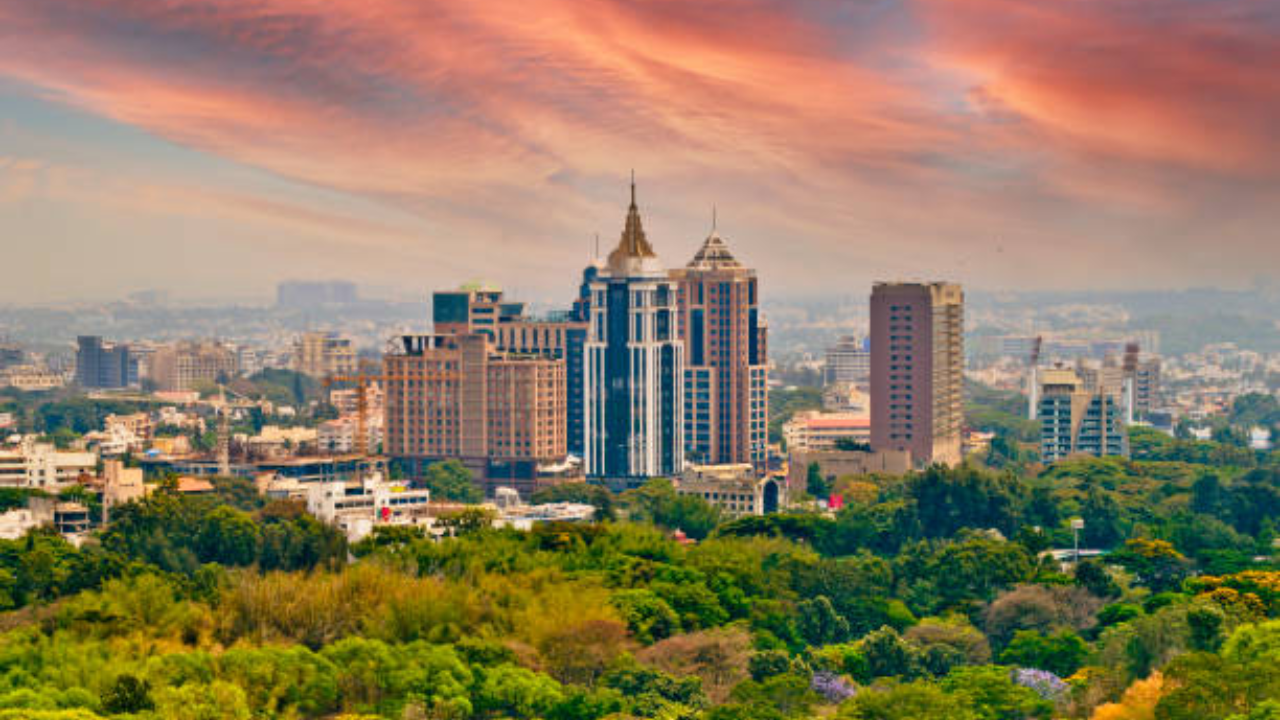 |
|
Bengaluru's meteoric rise as India's leading tech hub is a testament to its dynamic economic environment and attractive lifestyle. The city's transformation over the past decade is nothing short of remarkable, showcasing a compelling narrative of innovation, opportunity, and significant job creation. The 'Bengaluru Rising' report, released during the Bengaluru Tech Summit, highlights the city's impressive growth trajectory, solidifying its position as a major economic powerhouse, rivaling established giants like Delhi and Mumbai. The creation of 80 million square feet of Grade A office space and the generation of 800,000 jobs between 2012 and 2023 speak volumes about the city's capacity to attract investment and foster employment opportunities. This substantial job growth is not only significant in its scale but also represents a diverse range of employment opportunities, from established tech giants to burgeoning startups.
The startup ecosystem in Bengaluru is arguably its most defining characteristic. With an average of 1,400 startups emerging annually over the past decade, the city has become a breeding ground for innovation and entrepreneurial spirit. This sustained rate of startup formation translates into significant funding and a remarkable number of unicorn companies, solidifying Bengaluru's reputation as India's startup capital. The concentration of talent, coupled with readily available funding and a supportive ecosystem, has fostered a virtuous cycle of innovation and growth. This thriving entrepreneurial environment contributes significantly to the city's economic dynamism, attracting both domestic and international investment.
Beyond the economic engine, Bengaluru boasts a compelling lifestyle that further fuels its appeal. The city's climate, with its 181 days of pleasant weather annually, stands in stark contrast to the harsher conditions of other major Indian cities. This favorable climate contributes to a higher quality of life, making Bengaluru an attractive destination for both professionals and families. Furthermore, the cost of housing, particularly when compared to cities like Gurugram and Navi Mumbai, remains relatively affordable, providing an additional incentive for individuals seeking a balance between career opportunities and a comfortable living environment. The high rate of passport ownership (25%) among metro areas reflects Bengaluru’s global integration and the cosmopolitan nature of its population.
Connectivity is another key factor contributing to Bengaluru's success. The addition of 27 domestic air routes between 2017 and 2023 has significantly improved the city's accessibility, making it easier for businesses and individuals to connect with other parts of the country and the world. The expansion of Kempegowda International Airport, including the new Terminal 2, has further enhanced international connectivity. This improved connectivity enhances Bengaluru's competitiveness as a global tech hub, attracting both talent and investment from across the globe. This combination of economic opportunity, a favorable living environment, and excellent connectivity makes Bengaluru a highly desirable location for businesses and individuals.
However, the remarkable growth story of Bengaluru is not without its challenges. Traffic congestion remains a significant concern, impacting both the quality of life and the city's overall efficiency. The city's struggle with traffic management is further exacerbated by its alarmingly high rate of road accidents, a stark contrast to other major metros that have seen reductions in these figures over the past decade. This underscores a critical need for improved urban planning and infrastructure development. Despite having the third-largest municipal budget, Bengaluru has the lowest per-capita municipal budget among major Indian cities, highlighting a significant underinvestment in critical public infrastructure. This underinvestment limits the city's ability to address pressing issues, such as traffic management, waste disposal, and public transportation.
The contrast between Bengaluru's rapid economic progress and the lagging development of its urban infrastructure highlights a critical need for improved governance. Addressing the existing infrastructure deficit and improving urban planning are crucial for sustaining Bengaluru's growth and preventing the city from being overwhelmed by its own success. Effective urban governance, including efficient public transport systems, improved waste management, and better traffic management, is paramount to ensuring that the city remains a desirable place to live and work. The lack of investment in public infrastructure undermines the quality of life and could potentially deter future investment. Therefore, a focus on improving governance and allocating sufficient resources to urban development is essential for securing Bengaluru's future.
Bengaluru's unique identity stems from its rapid and relatively recent emergence as a major metropolitan center, unlike the centuries-old evolution of Delhi and Mumbai. This modern phenomenon, driven by technological innovation and entrepreneurial spirit, presents both opportunities and challenges. While the city has made remarkable strides in becoming a global tech hub, sustaining this momentum requires a proactive approach to addressing its urban challenges. By focusing on improved governance, infrastructure development, and sustainable urban planning, Bengaluru can not only consolidate its position as India's leading tech hub but also aspire to become a global urban icon, a model for sustainable and inclusive metropolitan growth. The city’s adoption of electric vehicles, showcasing its commitment to sustainability, provides further insight into its ambition to become an environmentally conscious leader, a vital component of successful long-term development.
